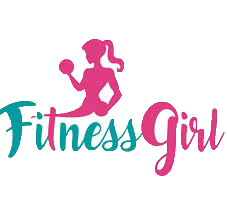What to Eat Before Running
- 蔡佩雯 北科大-
- Dec 23, 2019
- 3 min read
Updated: Dec 26, 2019
No matter how far you're running, fueling properly is key.

Everyone's stomach is different. Unfortunately, that means every runner has to find out for themselves when and what foods to eat before a run. But experts all agree: A pre-workout meal is vital for any athlete to properly fuel exercise.
Why You Need to Eat Before a Run
"It's the last chance to thoroughly feed your body before an intense bout of exercise," says Andrew Wade, R.D., a registered dietitian and certified specialist in sports dietetics based in Pittsburgh, PA. "Just as you fill up your gas tank before a long road trip, you have to give your body similar attention."'
You've probably rolled out of bed and skipped breakfast to make it to a morning workout class, and survived. So what's the big deal about making time for food pre-run? While you may be able to get through some workouts in a fasted state, taxing your body with a long run or high-intensity intervals guarantees that you're going to deplete your energy stores and then need more carbohydrates for fuel-and it's not great to start that kind of workout from a deficit.
"Since your body can only save a finite amount of carbs in the muscles and liver, it becomes important to maximize those stores going into a workout," says Wade. "Once your liver runs out of glycogen, your blood sugar levels cannot be maintained, and your body crashes." FYI: That's one factor for hitting the dreaded "wall" in long distance running.
Plus, once your muscles run out of carbs, they turn to other sources, mainly fat. "The conversion of fat to usable energy for muscles takes a significant amount of time, so your body will not respond quickly enough to the increased needs mid-run," says Wade. "During this time your body slows down, muscles fatigue, perceived exertion spikes, and performance significantly declines." Not ideal-especially during a long run.
When Exactly Should You Eat Before Running?
If you're running later in the day, you should be properly fueled if you've been eating enough throughout the day and have timed your run to your last meal or snack. "Meals should be eaten three to four hours before you start running, and snacks can be consumed 30 to 60 minutes before a run," says Sabrina Russo, a registered dietitian in New York City.
However, your fueling strategy also depends on the distance or amount of time you're running.
60 minutes or less: In this case, your fuel will depend on your individual needs. You may not need anything extra, especially if you've been eating healthy through the day; or you might crave a quick burst of energy. "If you're planning to do a low- or moderate-intensity run for 30 to 40 minutes or less, it's OK if you haven't eaten for a few hours or if it's first thing in the morning before an overnight fast," says Russo. You'll have enough fuel in reserves.
60 to 90 minutes: "If you're running a long distance or planning to run for over 60 minutes, I recommend having a pre-run meal or snack," says Russo.
90+ minutes: If you're running for more than 90 minutes, you might need to refuel during your run. Research shows that your body's blood sugar, which it relies on for energy, can become depleted within one to two hours of running. For runs lasting longer than 90 minutes, the Academy of Nutrition and Dietetics and the American College of Sports Medicine both recommend eating 30 to 60 grams of carbs per hour spaced 15 to 20 minutes apart.

OK, So What Should You Eat Before Running?
Your pre-run meal or snack depends on when and how far you're planning to run-the longer you plan on running, the more fuel you need.
If you're having a full meal pre-run...
Some examples of a good pre-run meal would be:
a whole-wheat bagel sandwich with turkey, lettuce, tomato,
and mustardan egg white omelet
and toastoatmeal and yogurt with a bananagrilled chicken
and a baked potato
If you're just having a pre-run snack...
half a banana or a slice of whole-grain toast
and one or two tablespoons nut butter homemade energy balls
one or two small protein pancakes and nut butter
one cup no-fat yogurt with 1 tablespoon of jam or 1/4 cup granola
1/2 cup of dried fruit with low-fat cheese










Comentarios